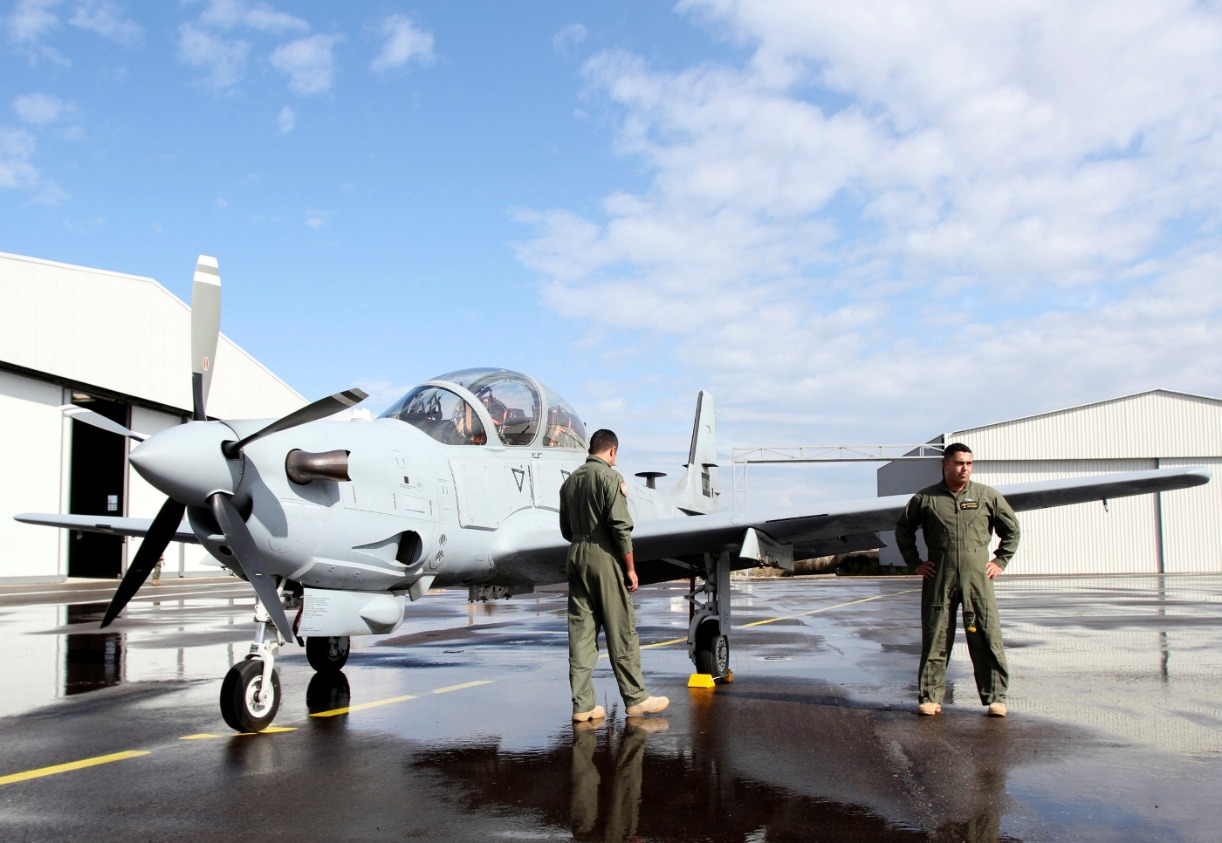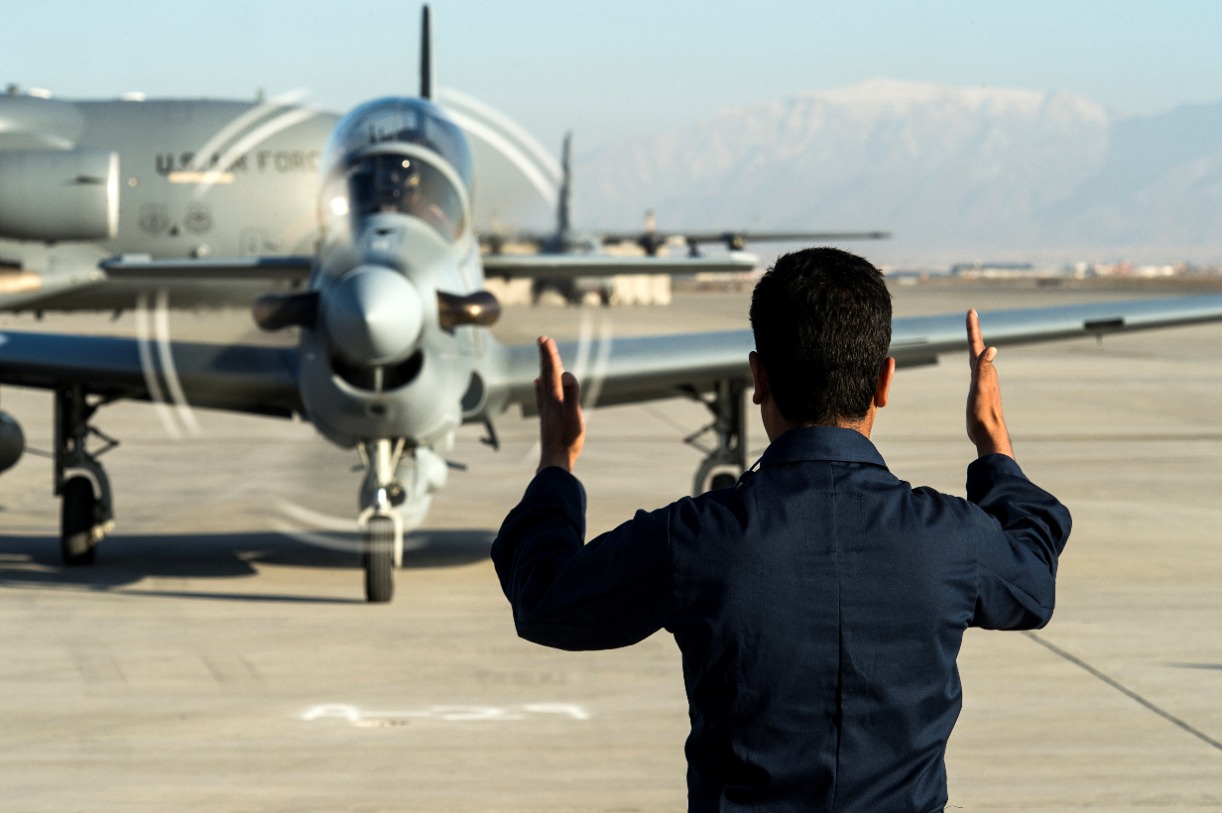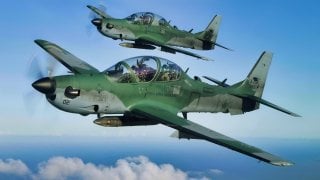A-29 Super Tucano: The Powerhouse Replacement for the A-10 Warthog?
Despite its high survivability and use by multiple air forces, the A-29 is unlikely to fully replace the revered A-10 Warthog in close air support roles.
Summary and Key Points: The A-29 Super Tucano is considered a possible replacement for the A-10 Warthog due to its low cost and weapon versatility.

-However, designed as a trainer and for counter-insurgency operations, the A-29 lacks the A-10's hallmark features, such as the massive gatling gun and rugged design.
-Despite its high survivability and use by multiple air forces, the A-29 is unlikely to fully replace the revered A-10 in close air support roles.
A-29 Super Tucano: A Viable Replacement for the A-10 Warthog?
The A-29 Super Tucano has been floated as a possible replacement for the A-10 Warthog, on account of the former’s low cost and its ability to carry a variety of weapons.
While the A-29 is in service with multiple air forces, the turboprop aircraft was built as a trainer. It is not an intuitive replacement for the A-10, the best close air support aircraft ever built.
Big Shoes to Fill
The A-10 Warthog is revered throughout the U.S. military, especially among Army soldiers who have called in the A-10 to hotspots where the straight-winged aircraft can loiter on-site for hours, dispatching enemy targets with precision and force. The hallmark of the A-10 is its massive gatling gun, running just off-center down the fuselage. The weapon fires about 70 soda-can-sized rounds of depleted uranium per second, allowing the A-10 to shred everything from fortified troop positions to tanks.
The pilots of the A-10 revere the aircraft, too. With a cockpit encased in a titanium bathtub-like protective shell, the pilot is mostly shielded from the harms that can beset such a low-flying aircraft. The airframe itself was built to be extremely rugged and resilient. The engines are placed above the wings, and the simple design allows the A-10 to fly even after sustaining heavy damage – the aircraft’s various redundancies help ensure it.
Given the reverence the A-10 has earned, it is unlikely that troops on the ground or pilots themselves are going to be super receptive to a replacement aircraft – especially a replacement that was designed as a trainer and has been in service with second-tier air forces like Brazil’s and Chile’s.
Squaring the Circle
The A-29 is not a direct equivalent of the A-10. For one, the A-29 does not have a massive gatling gun emerging from the nose of the fuselage. Nor is it built strictly for close air support. Instead, the A-29 was designed for training, border patrol, and counter-insurgency operations.
The A-29 does have some positive features that encourage comparisons to the A-10, and these are why the turboprop contracts with more than 15 air forces worldwide.
“The Super Tucano aircraft is a durable and versatile aircraft equipped with a powerful turboprop arrangement,” Air Force Technology writes. “The aircraft ensures low operational and sustainment costs…capable of operating day and night missions from remote bases and unpaved runways with minimal ground support.”

Like the A-10, the A-29 has high survivability, although for mostly different reasons, as Air Force Technology points out. “The flight envelope of the aircraft is 7g and -3.5g. Its small size, small visual and radar signatures, together with high speed and agility, give the aircraft high-survivability. Additional survivability features include armour protection and critical systems redundancy.”
Despite its low cost and high survivability, the A-29 is unlikely to convince troops that it is a viable alternative to the proven A-10.
About the Author: Defense Expert Harrison Kass
Harrison Kass is a defense and national security writer with over 1,000 total pieces on issues involving global affairs. An attorney, pilot, guitarist, and minor pro hockey player, Harrison joined the US Air Force as a Pilot Trainee but was medically discharged. Harrison holds a BA from Lake Forest College, a JD from the University of Oregon, and an MA from New York University. Harrison listens to Dokken.
All images are Creative Commons.
From the Vault
Russia Freaked Out: Why the U.S. Navy 'Unretired' the Iowa-Class Battleships
Battleship vs. Battlecruiser: Iowa-Class vs. Russia's Kirov-Class (Who Wins?)


